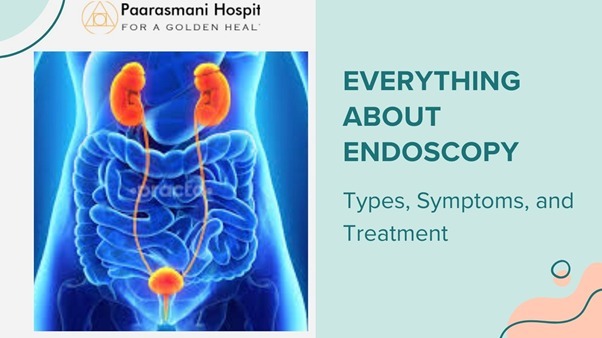





Ever wonder how complicated the procedure that modern medicine uses to identify gastrointestinal ailments? It is critical to understand the critical role endoscopy plays in identifying gastrointestinal problems in Pune, a city at the leading competitor of changing healthcare practices.
This process, which is regularly performed by knowledgeable urologists and gastroenterologists, has become essential for diagnosing a wide range of digestive issues. In recent times, there has been a noticeable increase in India's use of endoscopy for both therapeutic and diagnostic objectives
With its ability to provide an extensive examination of the digestive tract, endoscopy offers a sophisticated and appealing substitute for invasive surgical techniques. This advanced method not only allows for the precise identification of conditions affecting the upper part of the digestive tract, which includes the stomach, duodenum, and esophagus, but it also offers possible therapeutic options.
The esophagogastroduodenoscopy (EGD), also referred to as an upper endoscopy, is a sophisticated procedure that allows for a detailed examination of the upper digestive system. It is sleek and convincing. Skilled gastroenterologists employ an endoscope, a small, flexible instrument with a tiny video camera and light source, to precisely and thoroughly view inside structures.
This rising incidence highlights the value of effective diagnosis methods such as endoscopy. Furthermore, the use of endoscopies involves minimally invasive bodily openings, such as the mouth or anus. As an alternative, they can be put into tiny incisions like those in the abdomen or knee. Keyhole surgery is performed through a small incision with the use of specialized tools like an endoscope.
Through the use of endoscopy, your doctor can visually inspect an organ without requiring a significant incision. The doctor can see exactly what the endoscope sees thanks to a screen in the operating room.
This procedure, known as an endoscopic biopsy, allows your doctor to see inside your body during a surgical procedure, such as repairing a stomach ulcer or removing gallstones or tumors. It also helps your doctor identify the cause of any abnormal symptoms you're experiencing. Your doctor may order an endoscopy if you’re having symptoms of any of the following conditions:
Before the doctor looks inside your tummy with a special camera called an endoscope, they will check how you are feeling, look at your body, and maybe take some blood samples. These tests will help the doctor figure out what might be causing your tummy troubles and see if they can fix it without using the camera or doing surgery.
Numerous systems inside the human body can be studied via endoscopies, including:
The purpose of the endoscopy will influence the process somewhat.
An endoscopy is performed for three major purposes:
• Investigation: An endoscope can be used to look for the source of symptoms such as vomiting, abdominal pain, breathing problems, stomach ulcers, difficulties swallowing, or gastrointestinal bleeding.
• Verification of a diagnosis: An endoscopy might perform a biopsy to verify a cancer or other disease diagnosis.
• Treatment: An endoscope can be used to treat an ailment directly. For example, it can be used to remove a polyp or cauterize (close with heat) a bleeding vessel.
An endoscopy may occasionally be paired with another treatment, such as an ultrasound scan. It can be used to position the ultrasonic probe close to organs, including the pancreatic, which can be challenging to view.
Sometimes, sensitive lights that use narrow-band imaging are included with modern endoscopes. Using certain blue and green wavelengths, this imaging modality makes it easier for the physician to identify precancerous diseases.
During an endoscopy, the patient is usually aware, however, occasionally they may be given a local anesthetic (usually a spray on the back of the throat). They're usually under sedation.
A mouth guard protects the lips and teeth during endoscopic operations that require access through the mouth while the tube is being introduced.
Endoscopies are used by medical professionals to identify disorders and screen for abnormalities. Probably the most common endoscopy utilized for disease screening is a colonoscopy. It is employed to find colon cancer. Endoscopy is widely used for diagnostic purposes, one of which is the removal of aberrant tissue for laboratory analysis. We refer to this as a biopsy. Biopsies can reveal if a tumor is malignant or not.
Endoscopy was initially utilized by medical professionals mainly for organ examination. These days, endoscopy is used for a wide range of procedures, including the repair of a bleeding stomach ulcer. Such an issue might have necessitated surgery in the past.
An endoscopy can identify conditions affecting your:
Certain endoscopes can be combined with tools that let medical professionals:
Instead of making a huge incision to operate on organs, laparoscopists use microscopic incisions. Sometimes, this is referred to as keyhole surgery . It requires far less incision than conventional surgery. For the treatment of various ailments, it is the recommended method.
Scientists are always working on new ways to make looking inside your body easier and less scary. One way they do this is by using a special pill that you swallow. This pill has a tiny camera inside, like the ones you use to take pictures. As the pill goes through your body, it takes pictures of your organs to help doctors see if anything is wrong, like if you have bleeding or tumors in your tummy.
Here are some essential endoscopic aspects.
Using an instrument called an endoscopy to identify intestinal issues has revolutionized modern surgery. In Hadapsar, Pune, Dr. Kunal Oswal, and Paarasmani Hospital are renowned for offering excellent endoscopy surgery. This kind of surgery offers excellent outcomes, a quick recovery, and less scars. The surgery of the future is endoscopy surgery. Give it a try to see if it can improve your mood and speed up your healing process.